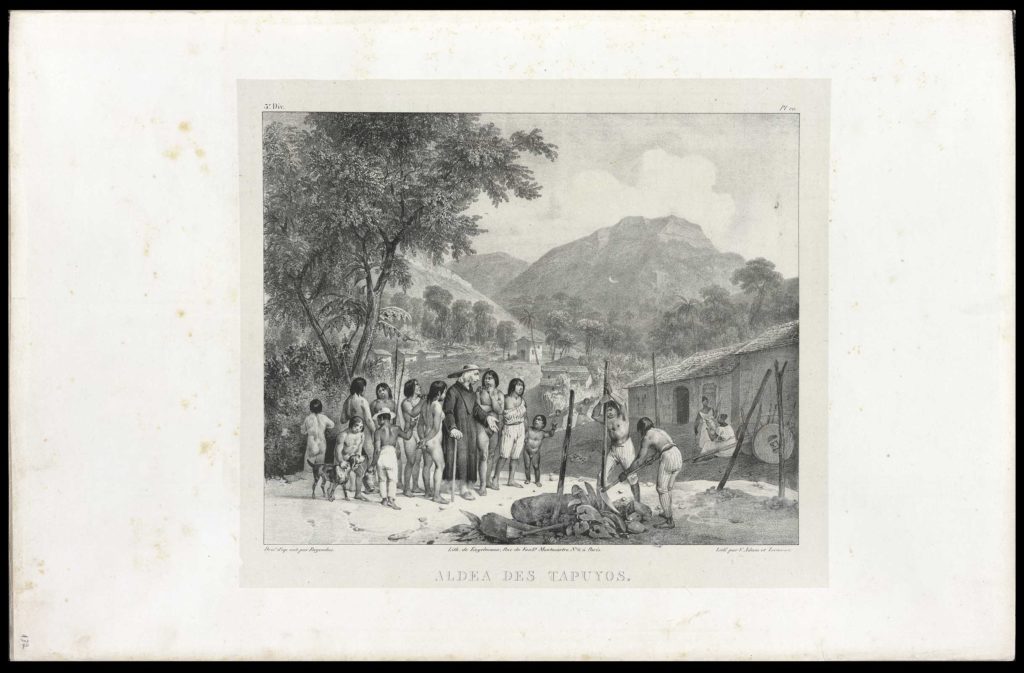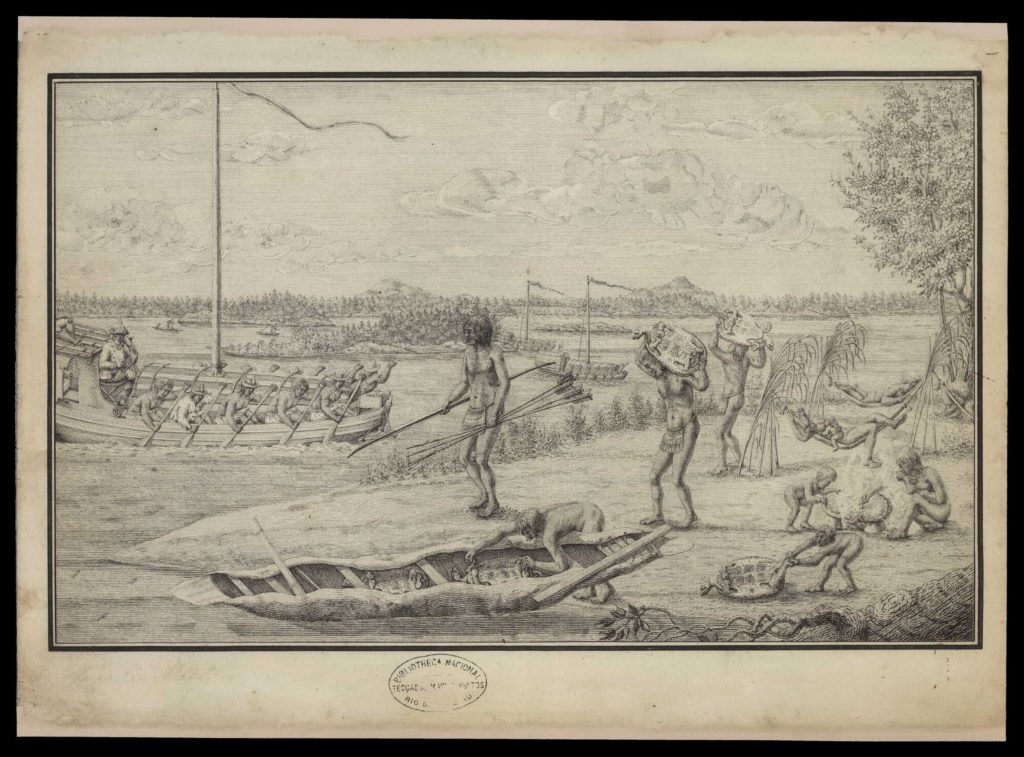What do you think of when talking about «minorities»?
The Cambridge dictionary defines «minority», among others, as «a group of people who share some characteristic by birth that makes their group smaller than some other groups in a society and may cause others to treat them unfairly». «Minority» can also be the «less than half of a total number or amount; the smaller part of something». However, as you might imagine, it does not refer only to a numerical disadvantage. A minority can also be, according to the same dictionary, «any small group in society that is different from the rest because of their race, religion, or political beliefs, or a person who belongs to such a group». The fact that the members of such groups share some characteristics by birth can «make their group smaller than some other groups in a society and may cause others to treat them unfairly».
But when did we start to think about groups at a disadvantage as «minorities»? Furthermore, does it mean that we can refer to the members of such groups as «minors»? Probably, we would answer negatively to the second question. And it is not just an assumption I do. The same dictionary I used at the beginning defines «minor» as «less, or little, in importance, size» or, alternatively, as «a person who is not yet legally an adult». So, let us stick to this last legal definition to think about the first inquiry of this paragraph.
For doing so, I will use the Brazilian study case, especially the process of «minorization» of indigenous peoples during the nineteenth century. By minorization, I am referring to the process of converting indigenous peoples into minors, juridically speaking. During the first centuries of Iberian colonization in the Americas, European jurists did a considerable effort to fit the reality of that continent into the juridical categories known in Europe. This effort was a result of the juridical anthropology of Europe itself, based on a traditional comprehension of the world, in which men were not entitled to create law, but only to discover the law already established by God on the earth.

Miserable, minors, and other European categories
When trying to «interpret» the position established by God for indigenous peoples in the world, the jurists early agreed that indigenous people were juridically miserables, a status that was traditionally applied to widows, orphans, the poor, merchants, and foreigners in Europe. According to Manuel Álvares Pegas, a Portuguese writer, miserables were those for whom we should be sorry for the injustice they naturally faced in life (Hespanha 2015). Each of these groups of miserables was considered vulnerable or incapable in specific ways; therefore, the condition of miserable would allow some procedural benefits when claiming before a judge, exemptions from obligations, and other kinds of legal privileges that were not provided to other groups. The assimilation of indigenous peoples to miserables is the most studied assimilation regarding the colonial period (Castañeda 1971; Cunill 2011; Duve 2004). But when it comes to the second half of the 18th century onwards, I believe it is important to attend to another important assimilation they were subdued to, which is the assimilation to minors.
The assimilation of the indigenous to minors represented a doctrinal deviation from the traditional category of miserable. While the conditions of miserable or rustic were generally taken to be natural conditions that could not be easily changed, the condition of minor was considered to be transitory and to lead to an end with emancipation.
In Portugal, the kingdom of Dom José I (1750-1775) ushered the second half of the 18th century. Amongst the many reforms carried out by his valido, later known as the marquis of Pombal, we can find the Directorate of Indians (1757), a legal text that intended to lead indigenous peoples toward civilization through the imposition of the Portuguese as mandatory language, the control over indigenous’ work, salary, commerce, and behaviour. The Directorate itself contains the idea that indigenous people were miserable considering their ignorance and rusticity. Nevertheless— and this is the important change introduced by this regulation— such a situation could be overcome through «civility, culture, and commerce». While applying the new rules, Pombal’s brother and Governor of the Amazonian region, Francisco Xavier Mendonça Furtado, ordered that those indigenous that would not value the benefits of wage labour shall be considered insane and subdued, as such, to the jurisdiction of the Judges of Orphans (Farage/Cunha 1987). As with other minors in this context, submission to an external administration implied a submission of their labour, at the discretion of the respective administrator (Geremias 2019); Premo 2005)).
As we can see, despite that the Directorate does not refer to indigenous peoples as minors, the application of its statements approached both notions. An orphan, by definition, was a person who lacked a figure of authority that could respond for him or her in society. Orphans were those whose father was not alive (Mafra 1868). However, of course, it was not the presumption behind the assimilation of indigenous people into orphans. For them, orphanage was presumed to be both a cause and result of an aim to justify the subjection to external administration. In other words, because of the abusive use of their workforce from private subjects and consequently with an aim to subject them to the administration of the Judges of Orphans.
Relatively miserable: the role of the Judges of Orphans
During the 19th century, with the emergence of the principle of equality before the law, miserableness started to consolidate as a concept related to the juridical capacity to represent one’s self-interests before courts. With an aim to avoid the risk of defenselessness, the article 73 of the Brazilian Code of Criminal Procedure (1832) allowed any citizen to claim for a miserable person who was offended party. It also established that it was mandatory for the Public Prosecutor’s Office (see full text). In 1865, the Ministry of Justice defined the «genuine meaning of the word miserable» regarding this article. According to this statement of the Ministry, «we shall consider miserable, while applying this article, those who declare before an Authority, and is by them recognized, that due to his circumstances he cannot prosecute his offenders, safeguarding the challenge of this quality by the defendant»( Collecção das decisões 1865). In 1888, the Section of Justice of the Council of State reaffirmed that a «miserable person, in its juridical meaning, is every person that, due to his or her circumstances, cannot claim rights before the courts». Nevertheless, in this report, the Section distinguished juridical miserableness into two categories: relative and absolute. Relative miserableness would be that which is supplied by the representation of tutors or guardians, while absolute miserableness would be that in which the miserable is abandoned by his legal protectors or is offended by them (Consultas do extincto Conselho de Estado 1907).

The assimilation of indigenous peoples into minorities during the nineteenth century was a progressive process of connection between the status of miserableness and the subjection under the Judge of Orphans, whereby they would be similar to minors. When the Directorate was revoked in 1798, Queen Maria I of Portugal sent a letter to Francisco de Sousa Coutinho, captain of Pará with recommendations regarding this topic. In the letter, once again we find the recommendation to impose the jurisdiction of orphans on indigenous workers in order to avoid abuses from private employers (Revista do IHGB de 1857 1973). Later, the law enacted on the 27 October 1831 proscribed indigenous’ servitude, stipulating that indigenous people thereby released from servitude should be under the guardianship of the Judges of Orphans (see full text). Two years later, the decree of 3 June 1833 determined that Judges of Orphans were entitled to the administration of indigenous’ goods (Collecção das Leis 1833). On 13 August 1834, the Ministry of Justice specified that such entitlement was not a contentious jurisdiction (meaning that it was not a privileged forum) but an administrative jurisdiction (Collecção das decisões 1834) – a sort of reminiscence of the governance competences of judges during the Ancien Régime.
The final role: Directors as fathers
Finally, in 1845 a new regulation for indigenous’ administration was enacted, and new administrative figures were created to guard indigenous rights (see full text). The so-called “Regulations for Missions” was inspired both in the Directorate of Indians of 1755 and in the structure of Jesuit Missions during the colonial period. It created again the position of directors, which were designated by the provincial power and had plenty of functions related to the control of indigenous lands and labour. They had the power to decide upon their land occupants, determine the use of the land, propose its demarcations and renting, as well as to administrate its finances. They could also be the procurator of indigenous people in court. Although the jurisdiction of Orphans’ Judges was never abrogated by law, in practice the Regulations for Missions meant an emptying of its functions and symbolized the definitive conversion of indigenous’ matters into an administrative matter.
If we bear in mind that, traditionally, the power of administration referred to the power of the father (paterfamilias) over the rest of the members of his family, we can then reflect on why indigenous peoples were collectively subjected to administrative powers in a context in which the development of state power was strongly based on the idea of administration. It does not seem, in the end, that the juridical construction that assimilated them into minors was fortuitous.
Bibliography
Castañeda Delgado, P. (1971). La condición miserable del indio y sus privilegios. Anuario De Estudios Americanos, (28), 245-335.
Collecção das decisões do Governo do Imperio do Brasil de 1834. 1866. Vol. 3. Rio de Janeiro: Typographia Nacional, 207.
Collecção das decisões do Governo do Império do Brasil de 1865. 1865. Vol. 3. Rio de Janeiro: Typographia Nacional, 371.
Collecção das Leis do Imperio do Brasil de 1833. 1873. Vol. 3. Rio de Janeiro: Typographia Nacional, 109.
Consultas do extincto Conselho de Estado sobre assumptos da competencia do Ministerio do Imperio. Tomo I. 1907. Comp. Augusto Tavares de Lyra. Rio de Janeiro: Imprensa Nacional, 539-41.
Cunill, C. (2011). El indio miserable: nacimiento de la teoría legal en la América colonial del siglo XVI. Cuadernos intercambio, 8 (9), 229-248. Retrieved from https://revistas.ucr.ac.cr/index.php/intercambio/article/view/2223.
Duve, T. (2004). La condición jurídica del indio y su consideración como persona miserabilis en el Derecho indiano. In M. G. Losano (Ed.), Un giudice e due leggi: pluralismo normativo e conflitti agrari in Sud America (pp. 3-34). Milán: Giuffrè Editore.
Farage, N., & Cunha, M. C. d. (1987). Caráter da tutela dos índios: origens e metamorfoses. In M. C. d. Cunha (Ed.), Os direitos do índio: ensaios e documentos (pp. 103-118). São Paulo: Brasiliense.
Geremias, P. (2019). “Como se fosse da família”: arranjos formais e informais de criação e trabalho de menores pobres na cidade do Rio de Janeiro (1860-1910).
Hespanha, A. M. (2015). Como os juristas viam o mundo (1550-1750). Lisboa: Createspace, 241.
Mafra, M. d. S. (1868). Jurisprudencia dos Tribunaes. Vol 1. Rio de Janeiro: B. L. Garnier, 225.
Premo, B. (2005). Children of the Father King: youth, authority and legal minority in colonial Lima. Chapel Hill: University of North Carolina Press.
Revista do IHGB de 1857. 1973. Vol. 20. Nendeln/Liechtenstein: Kraus Reprint, 437-42.
Cite as: de Freitas Macedo, Camilla: A brief legal history of «indigenous minority» (Brazil, 1758-1845), legalhistoryinsights.com, 07.12.2022, https://doi.org/10.17176/20221207-145342-0


